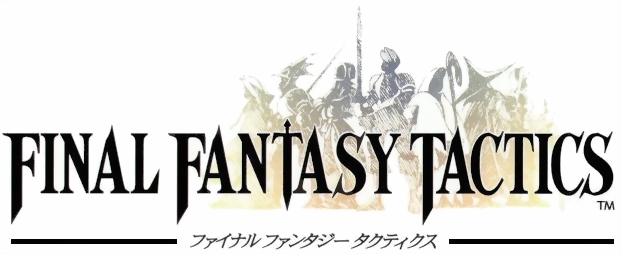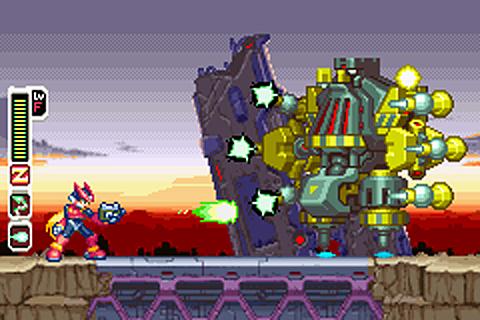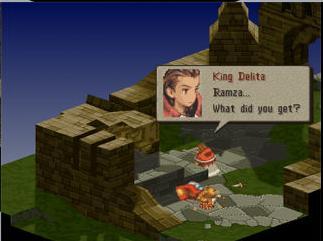Last updated on March 4, 2013
NOTE: Spoilers Ahead!
History is the most comprehensive horizon of Christian theology. All theological questions and answers are only meaningful within the framework of history which God has with humanity and through humanity in the whole of creation…
Wolfhart Pannenberg, Basic Questions in Theology
Pannenberg, from my perspective, retains the title of “historical theologian”. At a time when theology sought to escape the throes of the Enlightenment, which called the historical veracity of Scripture into question, Pannenberg dives right into the fray. He affirms that God’s revelation can’t be known outside of the context of history because that is the precise place where it is revealed.
Think of it in this way: ideas are, in general, both private and public. In the sense that ideas arise from the mind, they are, in first incarnation, only accessible to you. Eventually, these ideas bloom and take full shape as one begins to reflect and understand possible implications of such thought. Once this process has occurred to the best of that individual’s ability, the idea becomes shared knowledge amongst a group; hence, its public nature. We could also call this “objective”. If we apply this to the truth claims of the Bible, then theological knowledge in a Christian paradigm remains fully public. The subjective personal experience of an individual isn’t enough to sustain it because it makes universal claims. They are ideas in the realm of the public, and they can never be extracted. They are “indirect”, in that the original source of the ideas isn’t known to us (except for our own ideas). Thus, we have a foundation for ideas.
Video games, then, also exist as a product of such idea exchange. They take their primary inspirations from the perennial impulse of humanity to engaged in structured play, while also exhibiting elements of literature, music, philosophy, and religion (at least in recent times). They have evolved faster than nearly any other medium precisely because of the confluence of civilization that came before them. Most video games, at this point in time, don’t even require a working knowledge of reading; subtitles and text, once a requirement, find themselves relegated to the sidelines as voice acting and graphical prowess reign supreme.
Frankly put, this is a good thing; video games deserve exposure to all peoples as a common experience. However, the constant emphasis on realism and “adult” games loses what makes video games a special medium. Their communicatory properties, in fact, don’t just stem from technological advances. Real thought and work must take place to produce a meaningful and fun product. The “growing-up” of the medium means a sort of ageism creeps into the video game realm, and this isn’t a especially positive development. Children, supposedly, can be inundated with bright colors and slapstick comedy alone; they can’t be tasked with confrontation with the world’s real problems. Of course, that’s a new narrative developed over time in our cultural mythos.
Children of previous eras certainly grew up in violent and inhospitable contexts, sure, but even “children’s” stories displayed elements of the macabre. They’re awash with the dirt and grime of modern life, even if fantasy becomes the primary element of communication. Take a look at any of Grimm’s fairytales, or the non-Disnefied stories; they display real and terrible imagery which reinforce their moral lessons. Children weren’t treated as anything but tiny persons who, in times, would become adults; thus, they were raised and reared into that societal context right from their birth. You can see echoes of this in C.S. Lewis’ Narnia series, as well as J.R.R. Tolkien Lord of the Rings; these are fantasy worlds that also confront real-world issues. They make the problems stark and real, even in unreality. Modern society coddles our children and doesn’t prepare them for that transition in the least. Heck, take a good look at the Bible; it’s a tremendously offensive book filled with all sorts of horrific things that, apparently, make children shudder at the thought. Not that two thousands years of little Christian children have anything to say about that (brainwashing!).
In fact, children were seen as leeches on society; if they survived the harsh early years, they would contribute. If not, no great loss. This makes Matthew 19 all the more revelatory:
3 Then some children were brought to Him so that He might lay His hands on them and pray; and the disciples rebuked them. 14 But Jesus said, “Let the children alone, and do not hinder them from coming to Me; for the kingdom of heaven belongs to such as these.” 15 After laying His hands on them, He departed from there.
Theology was thought to be the domain of the adult, the man, and the leader; rather, Jesus (as in most things) declares the opposite as true. It is not the status of child that is affirmed, but the equality of children to the rest of society. That doesn’t mean children can understand all things; I know this by both Scripture and personal experience:
And I, brethren, could not speak to you as to spiritual men, but as to men of flesh, as to infants in Christ. 2 I gave you milk to drink, not solid food; for you were not yet able to receive it. Indeed, even now you are not yet able, 3 for you are still fleshly.
In fact, it surprises me that the video games I played as a child are pregnant with meaning and aren’t shy about the plight of humanity even in the midst of colorful and imaginative aesthetics. Appearances don’t deceive, but augment the message; a child can relate to the realms of the mind more than a straightforward description of reality because it adheres to their developing thought processes. That is why Mega Man Zero’s apocalyptic setting holds greater regard for many children than Cormac McCarthy’s The Road; the former was designed for children AND adults to interact and play, while the latter represents a particular link between father and son that is eponymous to a parent’s perspective. Zero gives a colorful, yet grimy and depressed setting reflecting the downfall of humanity. The vestiges of mankind’s greatness show a crumbling edifice wherein sentient robots (Reploids) turn and ultimately destroy their creators.
Certainly, that’s a great setting to allow children to wander and play, right? The Japanese, for whatever reason, have mastered this art of combining maturity, structure, and innocence together in small settings and grand, sweeping tales. Final Fantasy Tactics represents the epitome of such design. It takes an appealing, yet muted aesthetic design as a front for its authentic and fully-realized world of sin, corruption, death, violence, war, rape, betrayal, family conflicts, demonic possessions, false religions, magic, technology, politics, class, manipulation, deception, the true nature of history, and the nature of friendship. In America, it’s rated T for Teen – that’s got to be one of the worst misnomers I’ve ever seen. It is the abstraction of these concepts through the visual style that, even as a ten-year old child, I could masterfully understand the lot of it. That’s not to say the translation was perfect (for all intents and purposes, it’s a complete mess), but it was of little consequence for a developing mind which fills in the blanks with their idealistic faculties.
Tactics’ story rests, however, upon two distinct personages. Ramze Beoulve, of the House Beoulve, is the adopted son of a war hero in the realm of Ivalice. In a way, he’s the combination of both low-born and high-born – a distinctly disadvantageous position in the realm of Tactics. Delita, on the other hand, is fully lowborn. A peasant family holds little prospect in Ivalice. Except for the urging of the Beoulve and his friend Ramza, Delita wouldn’t even be admitted into the military academy. The game begins at the end of the Fifty Years War; peace has been restored, and Ramza’s father goes to the final rest. Still, unrest among the people (due to the soldiers’ unpaid wages) escalate, and rebellions must be snuffed. So it is that Ramza leaps into the fray with Delita in hopes to quell the rebellion.
It is here that we see the corruption underlying this new peace. The capture of Marquis Elmdor, to whom Ramza was sent to rescue, was a political ploy by Dycedarg, Ramza’s older brother. Delita’s sister, Teta, is captured by the rebels even as they plan to give her back – they mistake her for a noble. After all, she’s worth nothing as a peasant. The obsession with class remains alive and well in Algus, whom the player meets early in their mission. He is hated with good reason from the majority of the game’s fanbase. Algus, whose obsession with rank knows no bounds, kills Teta on Zalbag’s orders, yet another of Ramza’s brothers. Delita, obviously, never recovers from these events: he sees the foul nature of humanity and disappears. Ramza, too, looks in disgust upon the actions of the ruling class and becomes a mercenary after shedding his inheritance and title.
So what can be done to reform this state of affairs? Each young man asks their own question and finds a different answer. Ramza, the player character, may start as a mercenary, but eventually finds that he can’t stand that life while innocent lives become the pawns of those in power. As such, he finds himself the defender of Princess Ovelia (who ends up being a peasant as well). In this, he uncovers a grand conspiracy with a wide variety of players, each desiring either worldly dominance and power or a more sinister, otherworldly power in the Zodiac Stones. Ramza, though conflicted and manipulated throughout by various parties, succeeds in quelling all comers but is little remembered in history as anything more than a heretic of the Church (which, to no one’s surprise, is one of the main players in this web of lies). He lives in the end, and Ramza’s fate is left ambiguous, yet he is seen as the symbol of justice and righteousness in this world of death.
Delita, on the other hand, takes a different route to the same ends. Rather than being played by the deceptive nobility, Delita becomes one of them. He makes Ramza into a pawn of his own design, creating a situation whereby the two opposing sides of the Lion Wars (which begin as a result of the game’s narrative) destroy each other. Delita becomes the ultimate pragmatist and tactician, and his heartless and ruthless machinations serve to make him the king of Ivalice. He even makes Ovelia his wife, until she realizes she has become his pawn; that Delita kills her at the end of the game intentionally echoes Algus’ killing of Teta – a person becomes a means to an end, rather than a means in itself. In that does Delita’s final lines hold true resonance:
So, we come to the question: is it better to die a hero (or, in this case, be ultimately reviled) or live long enough to see yourself become the villain? Yasumi Mistuno, creator of this successor to the “Ogre” series of games, obviously portrays Ramza as the portrait of a true hero. Delita, though ultimately a villainous, started with good intentions until his revenge and ambition blinded him to its affects. Yet Ramza isn’t even known to the general public through his titanic struggle against political and metaphysical evil; Delita becomes the true hero, even if he brings immense suffering upon himself to reach these ends. Doing what is right and true, in the end, remains the thematic goal of Tactics, even if one isn’t remembered for such good. Matthew 6 confirms a Christian’s remarkably similar take in the matter:
“Beware of practicing your righteousness before men to be noticed by them; otherwise you have no reward with your Father who is in heaven.
2 “So when you give to the poor, do not sound a trumpet before you, as the hypocrites do in the synagogues and in the streets, so that they may be honored by men. Truly I say to you, they have their reward in full. 3 But when you give to the poor, do not let your left hand know what your right hand is doing, 4 so that your giving will be in secret; and your Father who sees what is done in secret will reward you.
5 “When you pray, you are not to be like the hypocrites; for they love to stand and pray in the synagogues and on the street corners so that they may be seen by men. Truly I say to you, they have their reward in full. 6 But you, when you pray, go into your inner room, close your door and pray to your Father who is in secret, and your Father who seeswhat is done in secret will reward you.
Furthermore, the “greatness” of Delita only lies within the realm of a false history fabricated in the past. Like that of the Church of Glabados, who founded their religion upon a demon (slayed by Ramza) unknowingly, the public of Ivalice praise Delita without knowing the true scale of his awful deeds. It is in objective history, the Germonik Scriptures (which detail the falsity of the Church’s doctrines) and the Durai Report that the true history reveals itself. The influence of history upon our own paradigm, similarly, changed the cultural paradigm into “secularism” from which we still live. The occult nature of true history is just as relevant to Tactics as it is to actual human civilization.
Public ideas can be deceptive if we don’t regard their ultimate origin; this is the problem of history and revelation all wrapped into one. Civilization can deceive itself with false notions of its own history and base its own foundations upon a lie. That is why the search for real, definite truth remains such a vital quest. Things cannot be merely an issue of personal opinion; otherwise, Delita becomes a hero and Ramza becomes the villain. The Bible demonstrates a story where the meek becomes the rulers of the earth, and the weak are made strong; it is that Christian narrative that was the objective and publicly accepted ideal of the masses. A return to such an idea, not the modern construction of “Christendom”, remains a fabricated myth. Rights come from God, not man; life comes from God, not human engineering. Modern history’s sins are vast, yet infinitely more subtle because we live in the current context.
The real revelation in history, of Jesus Christ, has been replaced with the lie of “secularism” and post-modernity. The fact that a video game can expose such ideas to a child just shows how great it is.
Let’s talk about how it plays, though!



